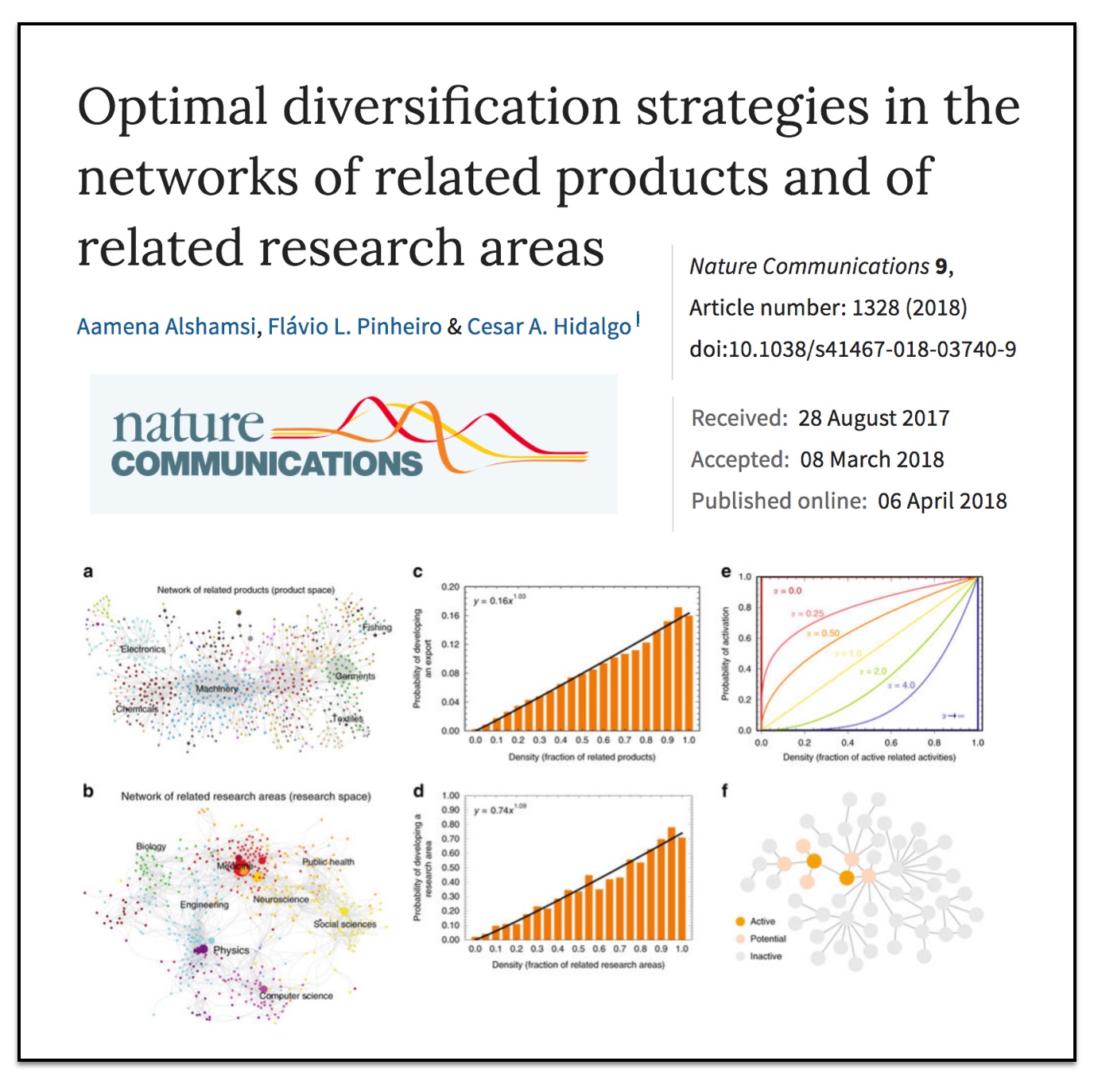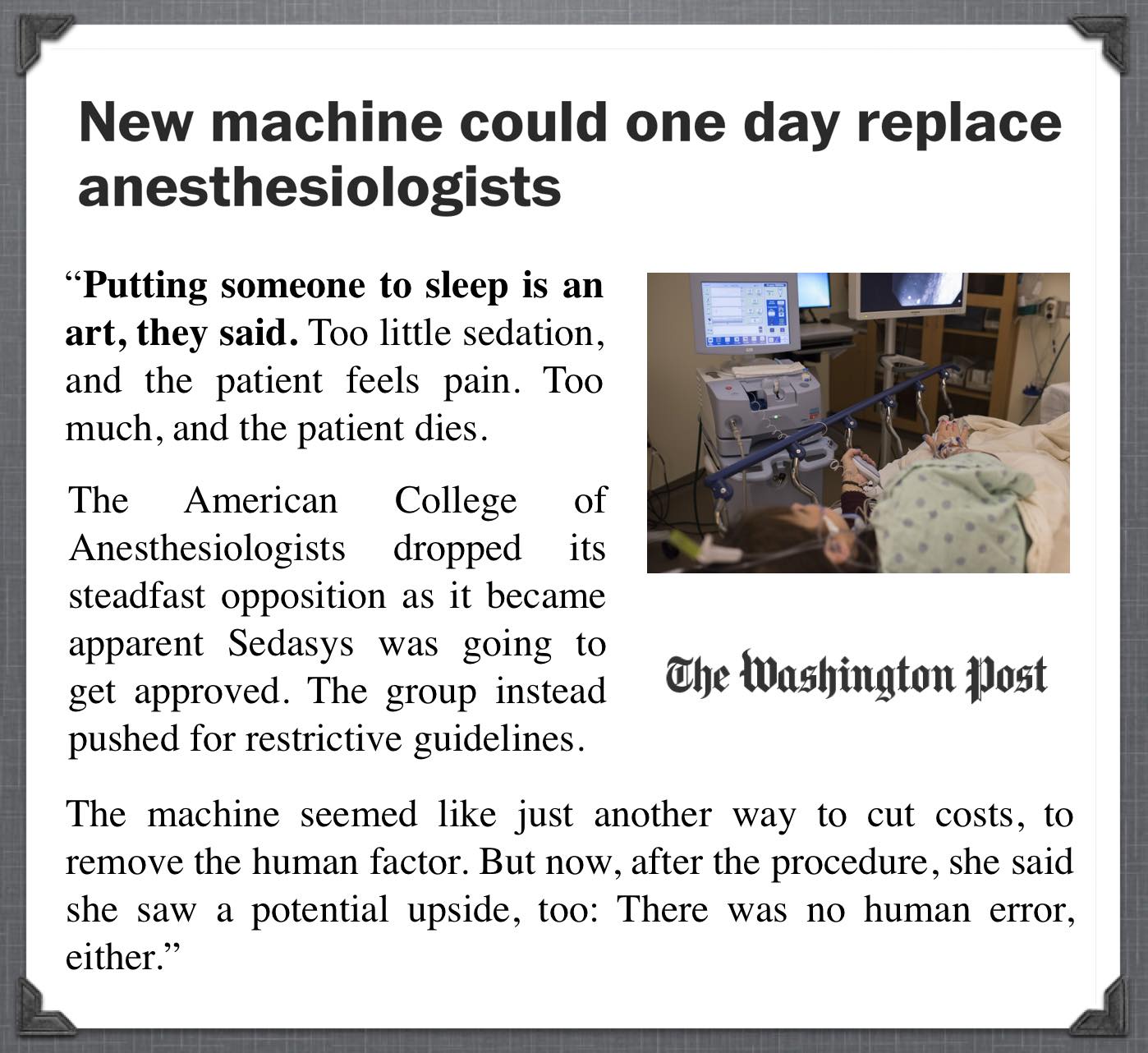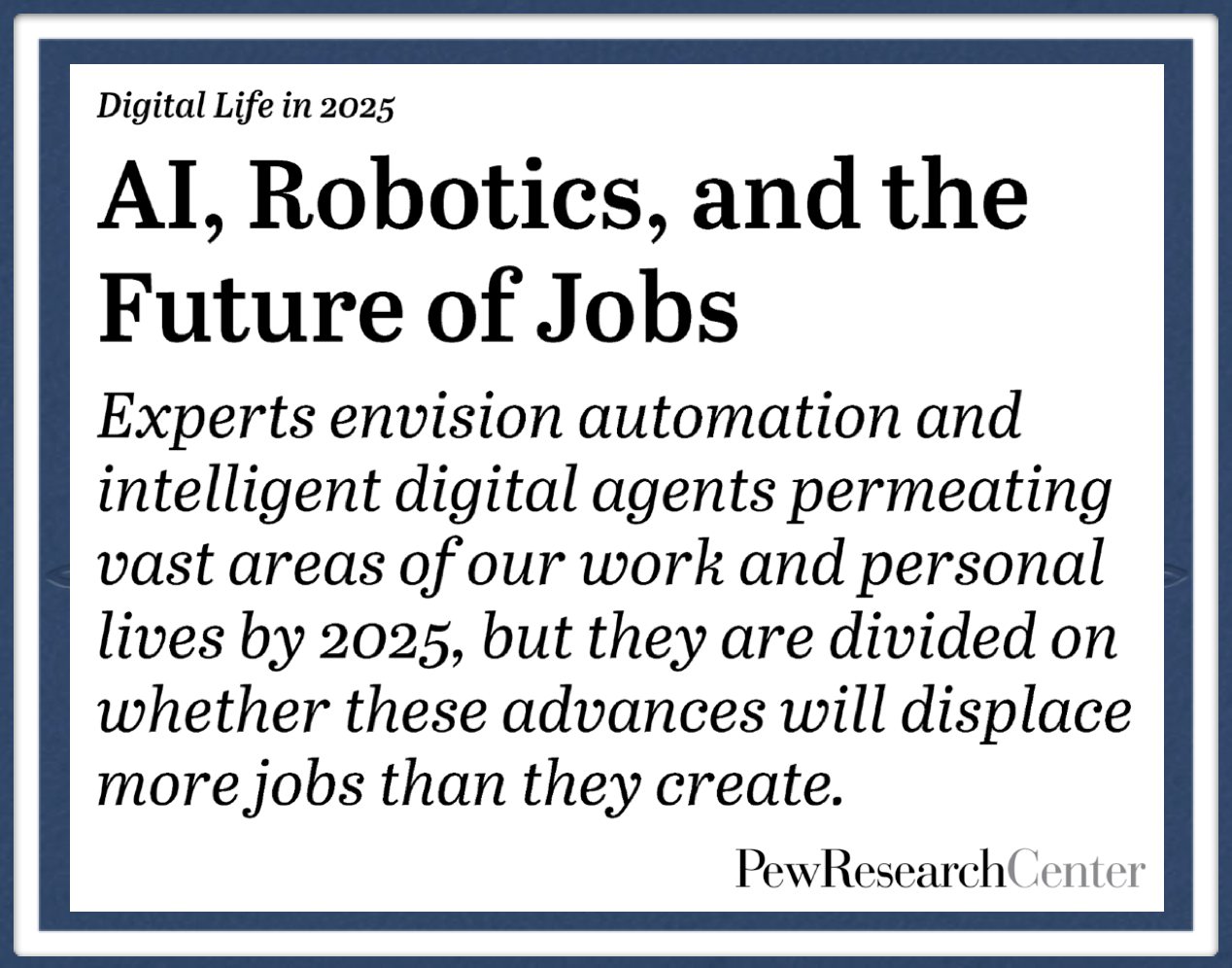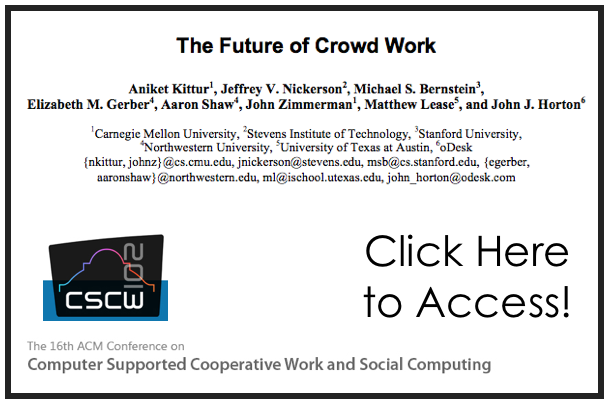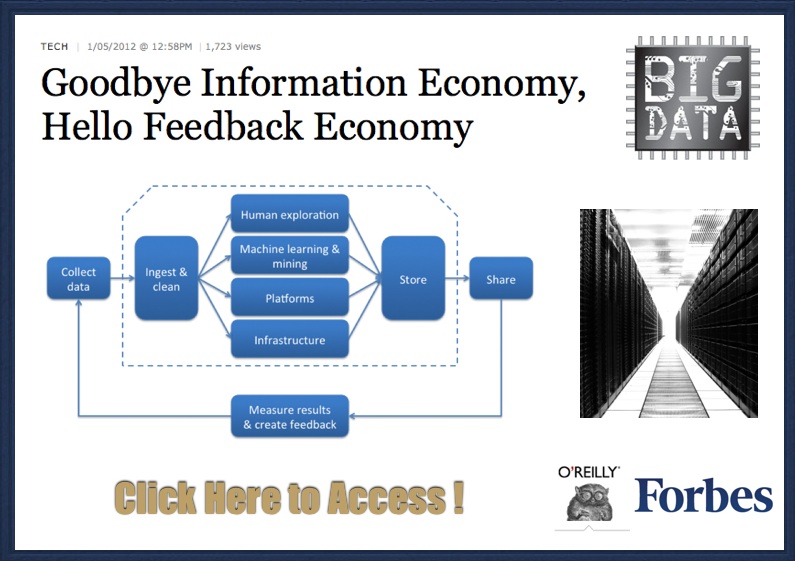Tag: economics
Economists are Prone to Fads, and the Latest is Machine Learning (via The Economist)
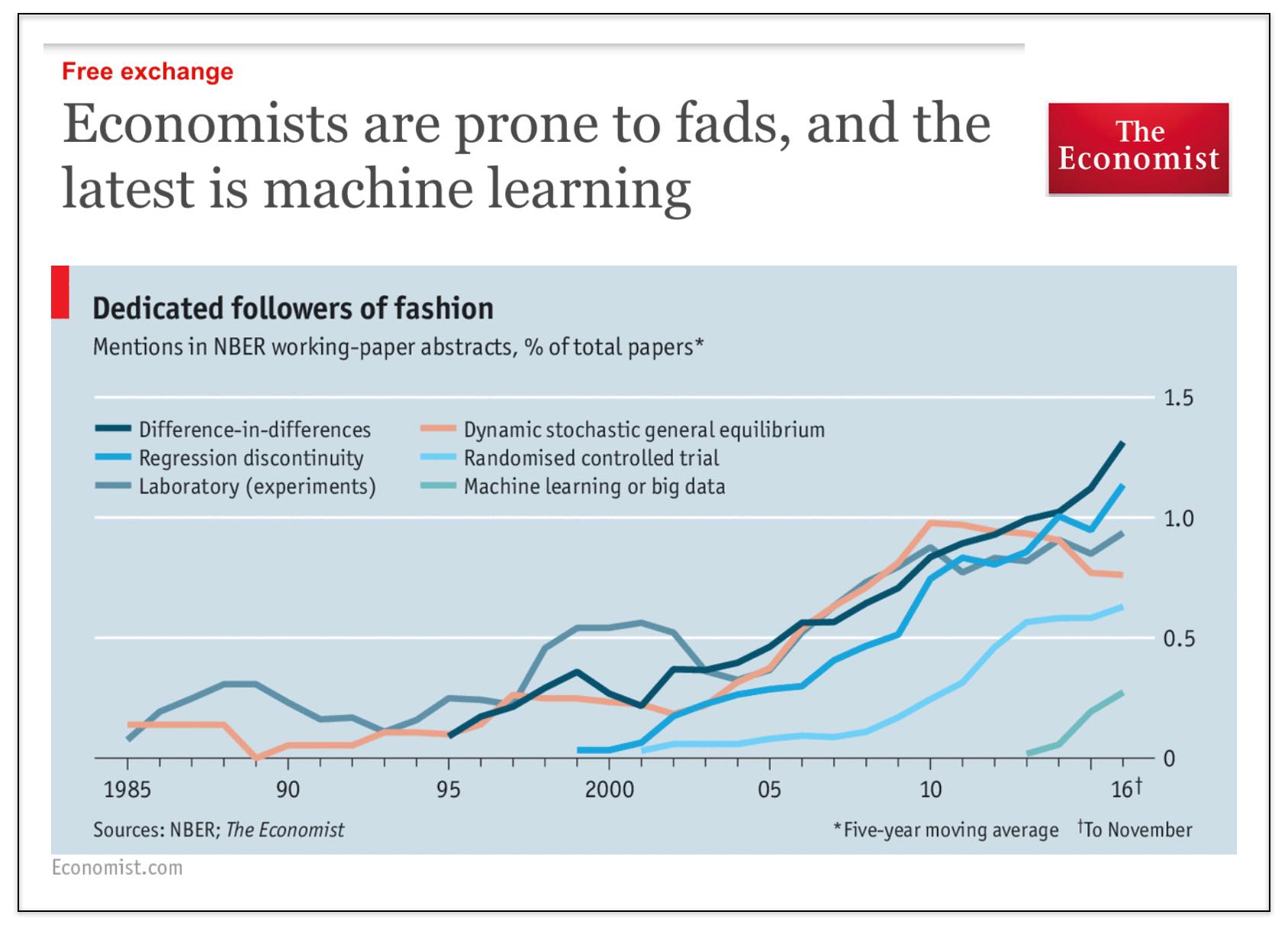
We started this blog (7 years ago) because we thought that there was insufficient attention to computational methods in law (NLP, ML, NetSci, etc.) Over the years this blog has evolved to become mostly a blog about the business of law (and business more generally) and the world is being impacted by automation, artificial intelligence and more broadly by information technology.
However, returning to our roots here — it is pretty interesting to see that the Economist has identified that #MachineLearning is finally coming to economics (pol sci + law as well).
Social science generally (and law as a late follower of developments in social science) it is still obsessed with causal inference (i.e. diff in diff, regression discontinuity, etc.). This is perfectly reasonable as it pertains to questions of evaluating certain aspects of public policy, etc.
However, there are many other problems in the universe that can be evaluated using tools from computer science, machine learning, etc. (and for which the tools of causal inference are not particularly useful).
In terms of the set of econ papers using ML, my bet is that a significant fraction of those papers are actually from finance (where people are more interested in actually predicting stuff).
In my 2013 article in Emory Law Journal called Quantitative Legal Prediction – I outline this distinction between causal inference and prediction and identify just a small set of the potential uses of predictive analytics in law. In some ways, my paper is already somewhat dated as the set of use cases has only grown. That said, the core points outlined therein remains fully intact …
Econometrics (hereinafter Causal Inference) versus Machine Learning
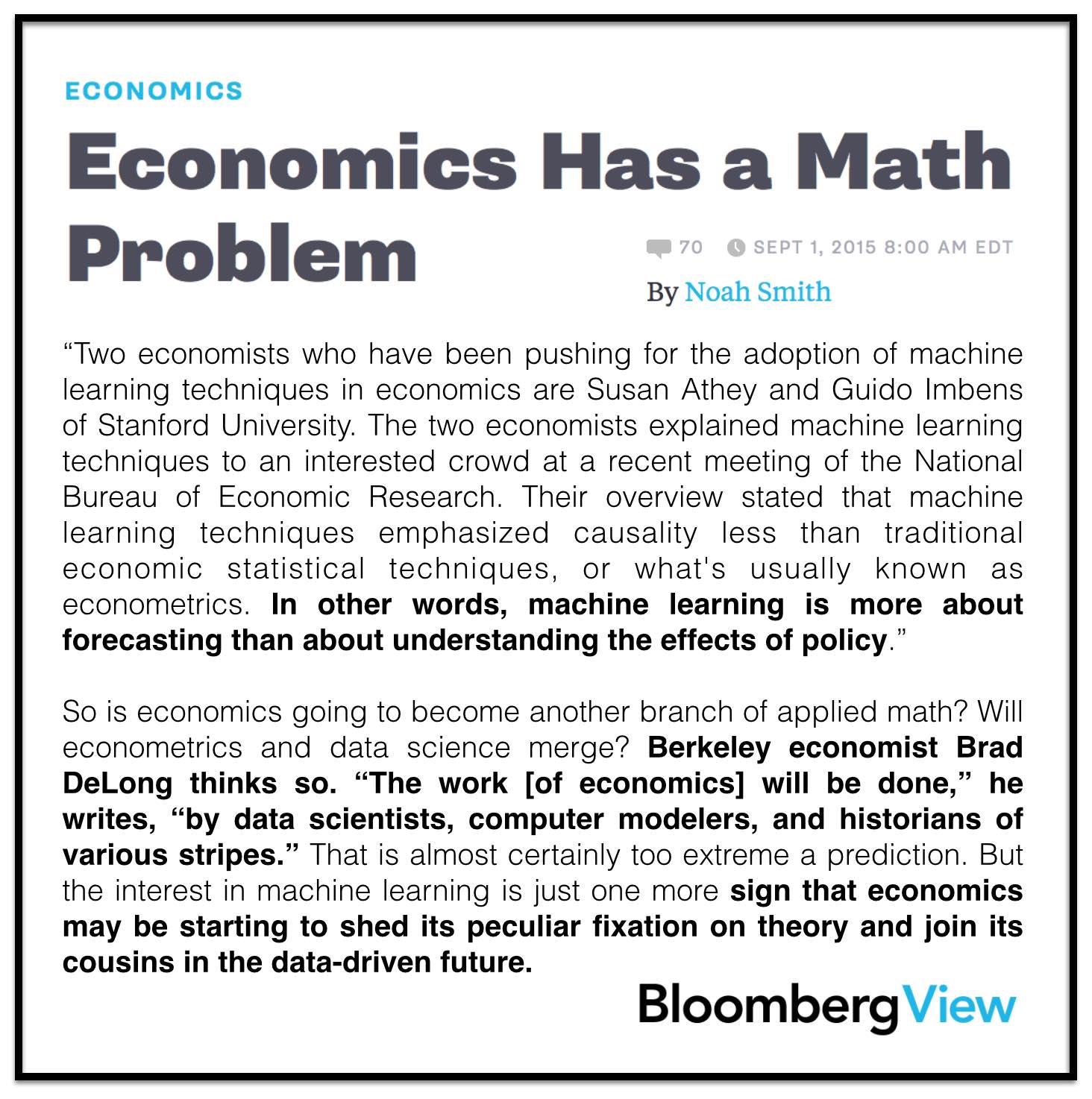 Perhaps some hyperbolic language in here but the basic idea is still intact … for law+economics / empirical legal studies – the causal inference versus machine learning point is expressed in detail in this paper called “Quantitative Legal Prediction.” Mike Bommarito and I have made this point in these slides, these slides, these slides, etc. Mike and I also make this point on Day 1 of our Legal Analytics Class (which really could be called “machine learning for lawyers”).
Perhaps some hyperbolic language in here but the basic idea is still intact … for law+economics / empirical legal studies – the causal inference versus machine learning point is expressed in detail in this paper called “Quantitative Legal Prediction.” Mike Bommarito and I have made this point in these slides, these slides, these slides, etc. Mike and I also make this point on Day 1 of our Legal Analytics Class (which really could be called “machine learning for lawyers”).
14th FRAP – Finance, Risk and Accounting Management Perspectives Conference @ Oriel College – Oxford
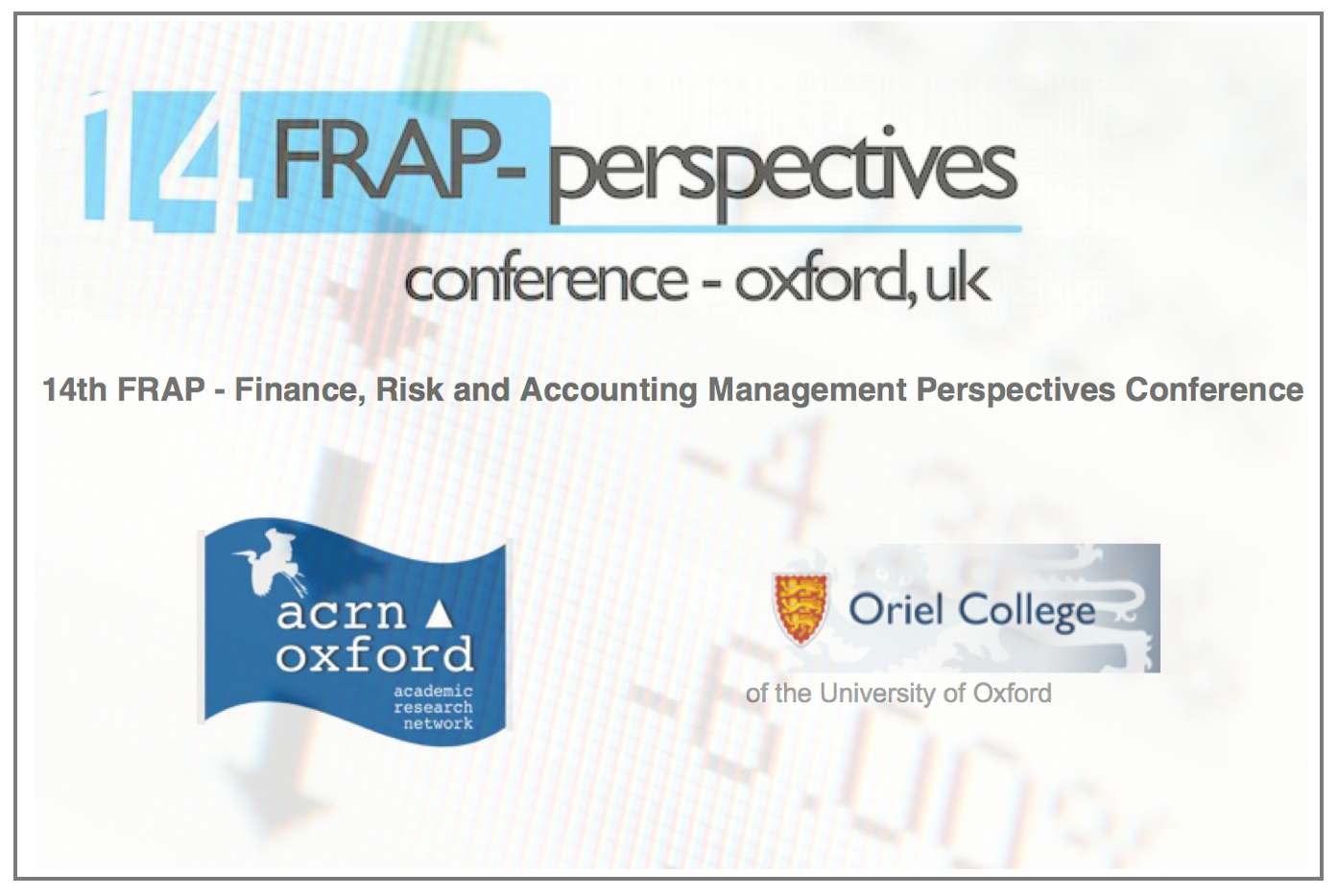 Tomorrow I will presenting initial results for my new project called ‘Law on the Market’ (co-authored with Jim Chen, Michael Bommarito & Tyler Soellinger) at the Oxford FRAP Finance Conference at Oriel College!
Tomorrow I will presenting initial results for my new project called ‘Law on the Market’ (co-authored with Jim Chen, Michael Bommarito & Tyler Soellinger) at the Oxford FRAP Finance Conference at Oriel College!
Legal Information Engineering & Technology (with Economics of Tech + Design) – Part of the MSU/Westminster – 21st Century Law Practice Summer Program London 2012
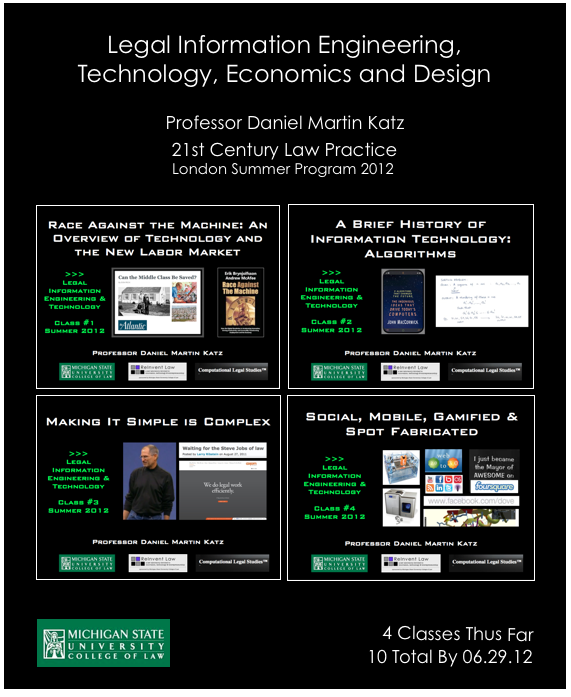 I will be posting materials from my 21st Century Law Practice London Summer Program Course to the course website here (or click on the image above).
I will be posting materials from my 21st Century Law Practice London Summer Program Course to the course website here (or click on the image above).
This 1 Credit Course is part of a total 3 credits in the summer program which also include 21st Century Law Practice (taught by Professor Renee Newman Knake @ MSU Law) and The Legal Services Act and UK Deregulation (taught by Professor Lisa Webley @Westminster Law & Professor John Flood @Westminster Law).
Students will finish this two weeks of intensive training in law, technology, innovation, (de)regulation by participating in the public LawTechCamp London 2012 which will take place on June 29, 2012 in Central London. All students will attend this event of industry leaders and several will present their ideas regarding the future of {law+tech}.

